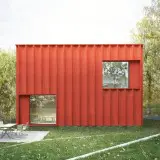Spacing When Planting Vegetables. A Guide for the Most Useful Cultures
Knowing the right spacing when planting vegetables is essential to the plant’s future development and your comfort when working in the garden. Here is a small guide for setting up your vegetable garden.
Spacing when planting vegetables. Specifications
It’s better to have larger spacing, than overcrowding in your vegetable garden. Overcrowding leads to plants growing too tall in search for light, bearing smaller fruit and being more vulnerable to diseases and pests.
Seedlings should grow in straight rows. Even if you don’t use machines in the garden, it will still bea easier for you to move around when doing your work.
If you use drip irrigation, you should install it before planting. The irrigation lines should be right next to the plant rows and each plant should be close to the dripper.
If you use raised garden beds, you can leave up to 30% less spacing, on condition that you take good care of the plants and completely eliminate weeds.
Spacing when planting vegetables. Examples
Tomatoes – 27 inches between rows, 10 – 15 inches between plants
Egg plants – 27 inches between rows, 15 inches between plants
Peppers – 25 inches between rows, 5 – 5.5 inches between plants
Cabbage – 20 inches between rows, 6 inches between plants
Carrots – 12 inches between rows, 2 inches between plants
Cucumber – 30 inches between rows, 8 inches between plants
Squash – 40 inches between rows, 20 inches between plants
Beans – 35 inches between rows, 8 inches between plants
Peas – 27 inches between rows, 2 inches between plants
Potatoes – 27 inches between rows, 8 inches between plants
Onion – 8 inches between rows, 3 inches between plants
Garlic – 12 inches between rows, 2 inches between plants
Celery – 27 inches between rows, 4 inches between plants
Also consult our planting calendar for the vegetables you want to grow.
Credits: paradisverde.ro, cartiagricole.ro
Photo credits: hobbygradina.ro















